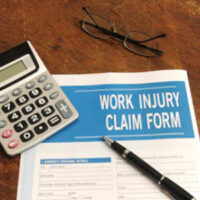Payment of Lost Wage: A Bedrock Principle of Workers’ Compensation Law

In Florida, the “grand bargain,” legislated in 1938, was that the employers promised to provide expeditious medical care and lost wages to an injured worker in exchange for the injured worker forgoing his/her right to sue the employer in Circuit Court. Unfortunately for injured workers, this “promise” has long-been forgotten and ignored, similarly to how the injured worker is treated in the current workers’ compensation scheme in Florida.
How Are Lost Wages (called “Indemnity” benefits) Calculated?
The workers’ compensation insurance carrier calculates your income based on what is known as an average weekly wage (AWW), which is based on your pre-tax income, plus employer contributions to fringe benefits, for the 13 weeks prior your date of accident (DOA). If you did not work substantially all of the 13 weeks prior to your DOA, then the AWW is that of a similarly-situated employee or the injured workers’ contract for hire.
Categories of Disability – Fla. Stat. 440.15
Fla. Stat. 440.15(1) – Permanent Total Disability (PTD): Permanent total disability is the most severe category of disability, which paid at 66.67% of the AWW until age 75. These are workers who are permanently unable to return to any work, even unskilled sedentary work, within a 50-mile radius of their residence because of their work-related injuries/conditions. Some injuries are so severe that the injured worker is presumed permanently disabled, such as with brain injuries, amputations, certain spinal conditions, occupational blindness, certain burns, and more.
There are three ways to prove your are permanently and totally disabled if you do not have a listed injury: 1) Permanent medical incapacity to engage in at least sedentary employment, within a 50-mile radius of the employee’s residence, due to physical limitation(s); 2) Permanent work-related physical restrictions coupled with an exhaustive but unsuccessful job search; or 3) Permanent work-related physical restrictions that, while not alone totally disabling, preclude the injured worker from engaging in at least sedentary employment when combined with vocational factors. Blake v. Merck & Company, 43 So. 3d 882 (Fla. 1st DCA 2010).
Fla. Stat. 440.15(1) –Temporary Total Disability (TTD): Temporary total disability is another category of disability, which is paid at 66.67% of the AWW for up to 5 years. These are workers who are unable to return to any work for a temporary period of time, such as during recovery from surgery or right after an accident.
Fla. Stat. 440.15(4) – Temporary Partial Disability (TPD): Temporary partial disability is yet another category of disability, which is paid at 80% of 80% of the AWW (or 64%) for up to 5 years. These are workers who are restricted from work and his/her employer does not have work available under those restrictions. These benefits are even payable if you have returned to work but are making less than 80% of your AWW, in which case you would receive the difference in pay.
Fla. Stat. 440.14(3) – Permanent Impairment Rating (PIR) Benefits: Permanent impairment benefits are for those workers who have been released by his/her authorized doctor to maximum medical improvement (MMI) and are assigned a permanent impairment rating. This is likely one of the last classifications of indemnity benefits you might receive, besides PTD. Payment of PIR benefits is based on 75% of the average weekly TTD rate, and is paid at two weeks for every percentage point from 1-10%, three week for every percentage point from 11-15%, 4 weeks for every percentage point from 16-20%, and six weeks for every percentage point from 21+%.
There are many other factors to consider in classifying and determining entitlement to one indemnity benefit or another, but, one thing is for sure, workers are often denied the indemnity benefits to which they are entitled. Contact the West Palm Beach workers’ compensation attorneys at the Celeste Law Firm today for answers to your questions if you have been injured on the job or you are being denied workers’ compensation benefits.
Resource:
myfloridacfo.com/Division/WC/Employee/calculators/TTcalc.htm
https://celestelawfirm.com/how-are-workers-injured-on-the-job/
